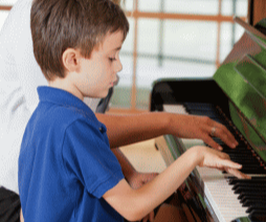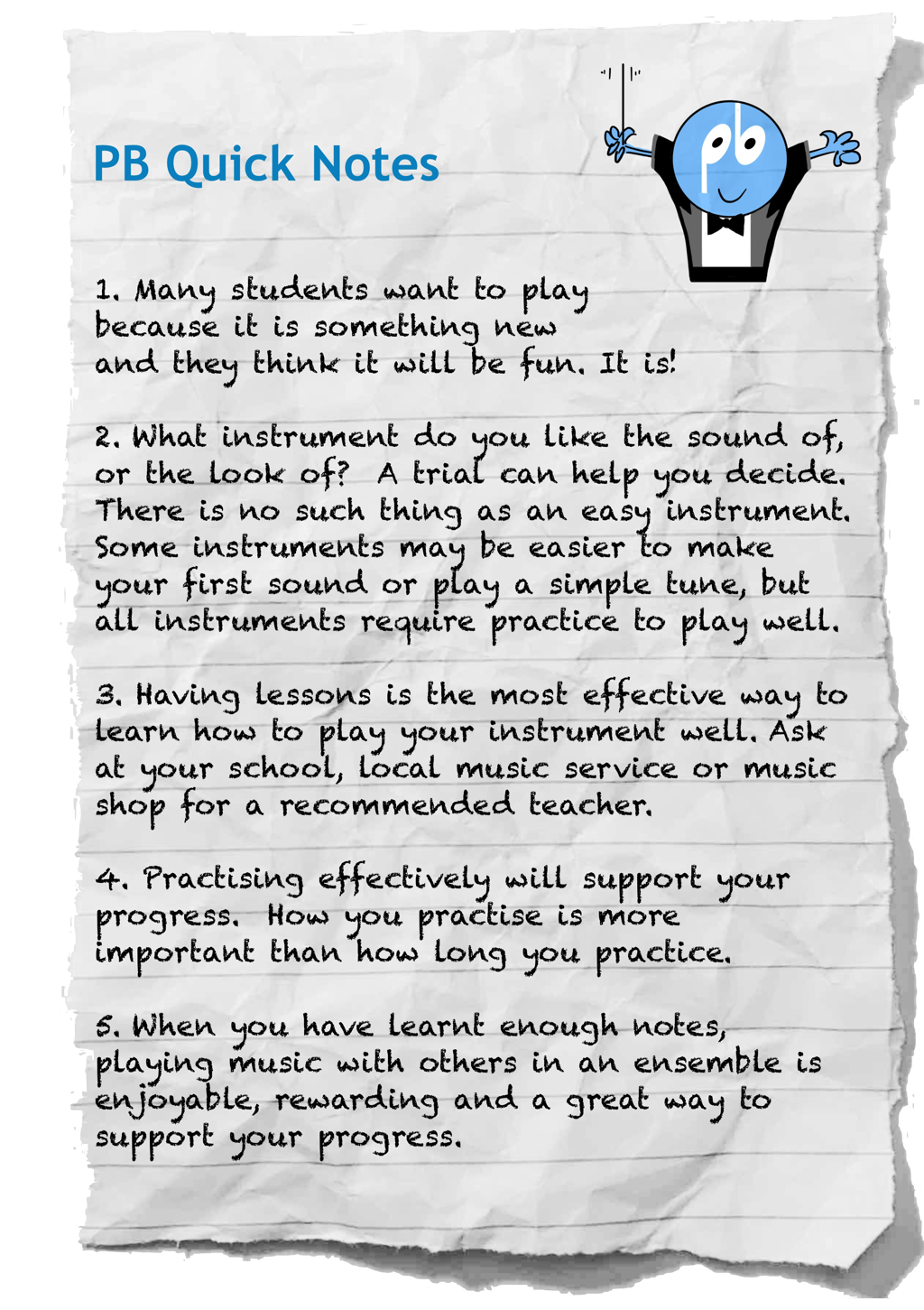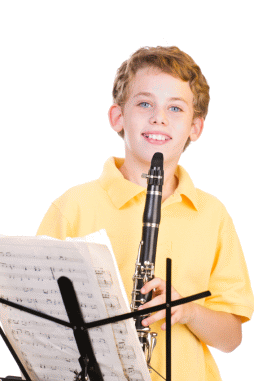|
Why play music?
Music is a means of communication that transcends all languages. Music is a direct expression of our human emotions. Music has always been part of our lives. We enjoy and benefit from listening to music, and learning to play a musical instrument can take this enjoyment and its benefits to a whole new level. More and more research is showing that playing a musical instrument develops your brain, social skills, creativity, discipline, relieves stress, and builds confidence while developing transferable skills for other activities in your life including school learning. https://www.ted.com/talks/anita_collins_how_playing_an_instrument_benefits_your_brain You do not need to be “musically gifted” to experience the benefits of playing a musical instrument. Regardless of your age, perceived ability or cultural background, music making can add value to your life. We wish you enjoyment as you start this journey. |
|
Why do you want to play?
Regardless of the benefits, most children want to play because it is something new with the anticipation of being fun. Just like getting a new puppy, there will be some work involved. MyMusicPB is here to support this work for you to enjoy and succeed with your music making. Starting something new, especially as we get older, can take us out of our comfort zone, but it can also be exciting and fun. Anticipation of success and enjoyment will fuel you with enthusiasm setting you up for the ideal start to your musical journey. Lets enjoy music making together. |
|
What instrument is right for you?
What instrument do you want to play? You might hear an instrument at school, a concert or on television. It might be the sound, the look or the style of music that interests you. And lets not forgot singing, our most natural music making instrument. A trial might be helpful, but don’t let a first failed attempt put you off learning an instrument that you are interested in. There is no such thing as an easy instrument to learn. Some instruments might be easier to make a first sound or play a simple tune, but all instruments require practice. Practicalities to consider include the cost, home practice space, your age, size and teacher availability. You will need an instrument to practice with at home. Rental can be a good option as a trial. MyMusicPB highly recommends that you speak to your teacher before you purchase an instrument, as there are many different makes and models for each instrument. An experienced teacher will know which make will benefit you the most in your learning. Second hand purchase can also be an affordable option, although repair costs may need to be factored in. Your teacher, or a good music shop will also inform you of any accessories required for your instrument. Your teacher will also suggest their preferred choice of instruction book for beginner students that will be used in the lessons and in your practice to learn the basics of the instrument and reading music. A few last thoughts on instrument choice…
|
|
Music Lessons
Due to the complexity of this multi-tasking activity, there are many stages in learning to play a musical instrument well. MyMusicPB highly recommends learning with a teacher who specialises on your instrument to ensure you get the most progress and enjoyment with each stage. A good instrumental music teacher will know the appropriate methods, music and the pitfalls to effectively guide through this journey. Some countries offer instrumental teaching incorporated into the school's music subject. Whole class ensemble teaching can offer an excellent introduction to Instrument music making. The progress you make with a teacher is dependant on the effective practice that you do. Most teachers prefer teaching weekly lessons, usually the same day of the week, setting a routine for practising the new skills learnt between each lesson, while not leaving to much time between the lessons for the student to loose their motivation for learning. Adult students sometimes prefer to book periodic lessons around their busy schedule when they feel they have had the sufficient amount of time to learn the new acquired skills. Traditionally, lessons length has been 30 minutes with advanced level musicians and adult students sometimes having up to 60 minutes or longer. Today, schools and teachers are much more flexible with options to reflect affordability. Although less expensive, shorter lessons leave much less playing time in the lesson, requiring much more commitment on your part to practice the newly learnt skills at home. Many schools offer shared lessons, with two or more students sharing the cost of the lesson. Shared learning can be effective and enjoyable for some students in the earlier stages of learning, before differentiation becomes to pronounced. |
Finding a Teacher
Instrumental music lessons may be offered at your school. If your preferred instrument is not available for lessons, your school may consider bringing in a teacher provided that there are enough students willing to learn. School lessons are very convenient with the benefit of learning for and contributing to the school's enrichment and values. You might have a county or private music service in your area that offers after-school instrumental music lessons at a local Music Centre. These centres can be a fantastic hub for extended musical activities to support your learning including ensembles. Private teachers offer lessons after school and on weekends from their home or music teaching studio space. Local music shops and internet searches will find you their contact details. Some instrumental music teachers teach full time while others fit in some teaching around their playing commitments. Regardless, a good teacher will be know by the success and enjoyment of their students. Ask other parents if they can recommend a good teacher. Fees are usually based on the length of the lesson time. Fees are fairly consistent between school and Music Centre lessons and subsidies may be offered for low income families. For private teachers, fees may vary depending on the experience of the teacher and the level of the student learning. Very often, fees are invoiced for a number of lessons in advance, requiring a given amount of notice time if you plan to stop. The best way to ensure value for money with music lessons is to support your learning with effective practice. |
|
Practising
The ideal way to support your progress is to practise effectively. Mymusicpb resources include a separate link for practice that we recommend you to view. Younger students will benefit from encouraging and informed parents. MyMusicPB’s online practice book sends emails to the parent after each lesson along with logging in to view their practice targets and leave messages for the teacher. It is helpful to set a regular practice routine in the first year of learning. Asking a child to practice everyday for 30 minutes can often be self destructive. A shorter period of 10 to 15 minutes, 3 to 4 times a week can be a keep younger student engaged between lessons. Just don’t play through the piece over and over. Develop the skill of carefully listening to yourself and identify difficulties to improve and elements that you enjoy in your playing. Practice involves correctly repeating small sections correctly, gradually building up to play the full song with fluency. |
|
What to expect in your first year of playing
There are many stages in learning to play musical instrument well. Just like building a house, it is important to build the foundations correctly. Developing good technique on your instrument will be balanced with the development of your musical skills including music reading and performance. Listening skills (aural) will also be developed alongside, contributing to your learned skills as an all-round musician. Your teacher will set appropriate tunes and exercises for you to practise between lessons that will support the new skills learnt. Effective repetition in your practice will develop fluency in your performance. Teachers will know the appropriate songs that will gradually increase in difficulty as you progress. Be patient, as it might take a little time before you can play your favourite pop tunes. Some instruments are quicker than others to be able to play a recognisable tune. Setting and reaching targets with your teacher can give you an insight and motivation to reach a particular level in your progression. Working towards your first graded exam, although not a requirement for learning can often give the student the motivation to improve with a sense of achievement having passed. Performing for family and friends is an ideal way to show your achievement with guaranteed positive feedback on offer. Joining an ensemble appropriate for your level will support your learning with shared enjoyment. Students who join an ensemble rarely give up playing. Beginning your music journey with a good teacher, effective practice, encouraging family, supporting ensemble activity, you can look forward to a rewarding, life time enjoyment of successful music making ahead. |



